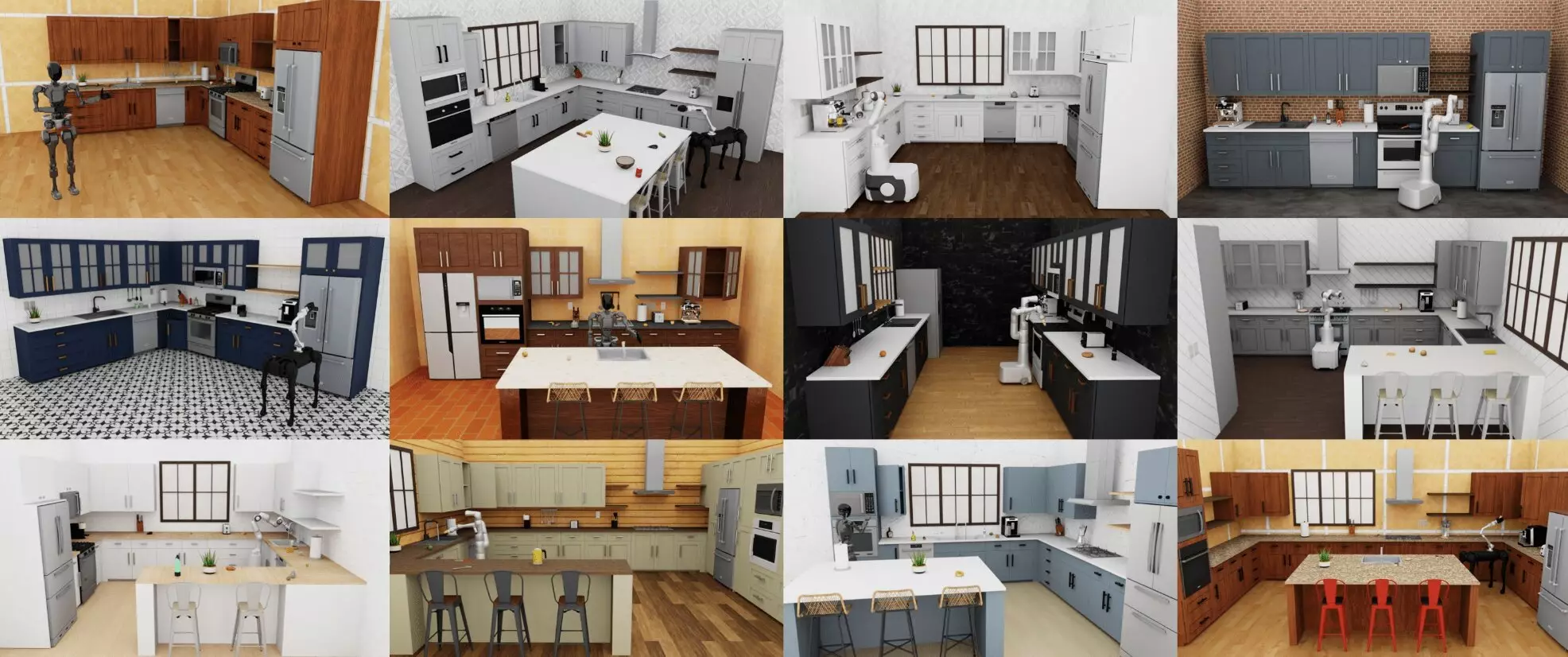The field of artificial intelligence (AI) has seen significant improvements in recent years, particularly in the development of large computational models for natural language processing (NLP) and computer vision algorithms. These advancements have been driven by the exponential growth of datasets used to train these algorithms, comprised of hundreds of thousands of images and texts sourced from various internet platforms.
Unlike AI tools, training data for robot control and planning algorithms is not as readily available. Acquiring such data poses a significant challenge, leading computer scientists to focus on creating larger datasets and platforms dedicated to training computational models for a wide range of robotics applications. However, the scarcity of training data has hindered the progress in this field.
Researchers at the University of Texas at Austin and NVIDIA Research have introduced a new platform called RoboCasa, aimed at training generalist robots to perform everyday tasks in simulated environments. This platform, set to be presented at the Robotics: Science and Systems 2024 conference, seeks to overcome the limited availability of training data for robotics algorithms by providing a large-scale simulation framework.
RoboCasa offers thousands of 3D scenes featuring over 150 different types of everyday objects, as well as various furniture items and appliances. The platform leverages generative AI tools to enhance the realism of simulations, creating diverse object assets, scenes, and tasks for robots to train on. Additionally, RoboCasa supports multiple robot hardware platforms and provides extensive datasets with over 100k trajectories for model training.
In initial experiments, RoboCasa proved to be an invaluable resource for generating synthetic training data that can be used to train imitation learning algorithms. The platform demonstrated a scaling trend, showing that increasing the size of training datasets consistently improved the model’s performance. Furthermore, combining simulation data with real-world data enhanced the robot’s performance in real-world tasks, highlighting the effectiveness of simulation data in training AI models for robotics applications.
Looking ahead, the researchers behind RoboCasa plan to expand and enhance the platform further to encompass a wider range of human-centered environments, from homes to factories to offices. By incorporating advanced generative AI methods, they aim to capture the diversity and richness of these environments, making RoboCasa a comprehensive training tool for the robotics community. Additionally, as an open-source platform, RoboCasa is accessible on GitHub for other research teams to experiment with and contribute to its development.


Leave a Reply